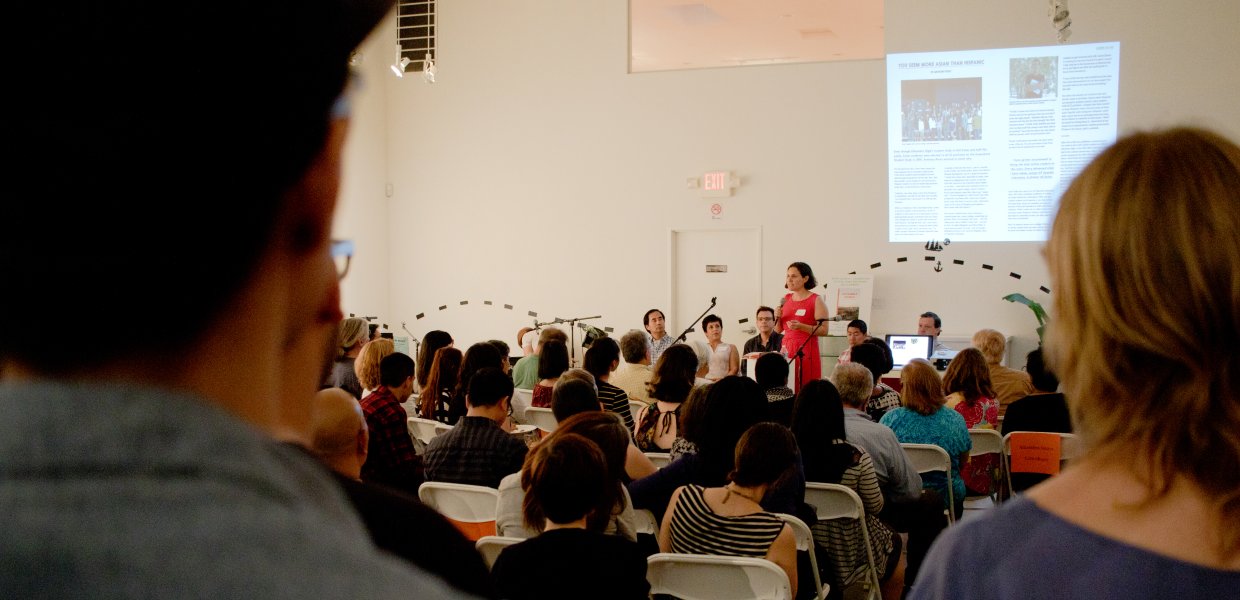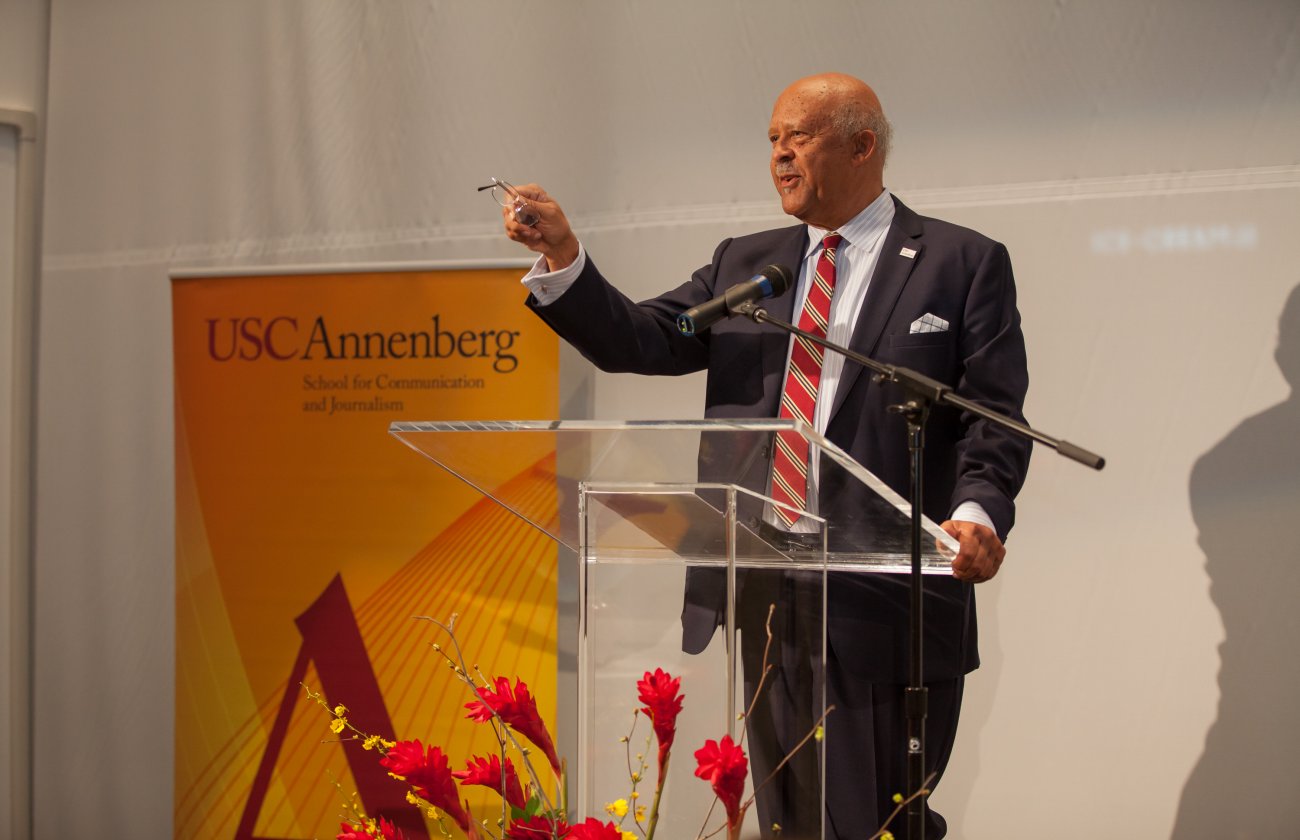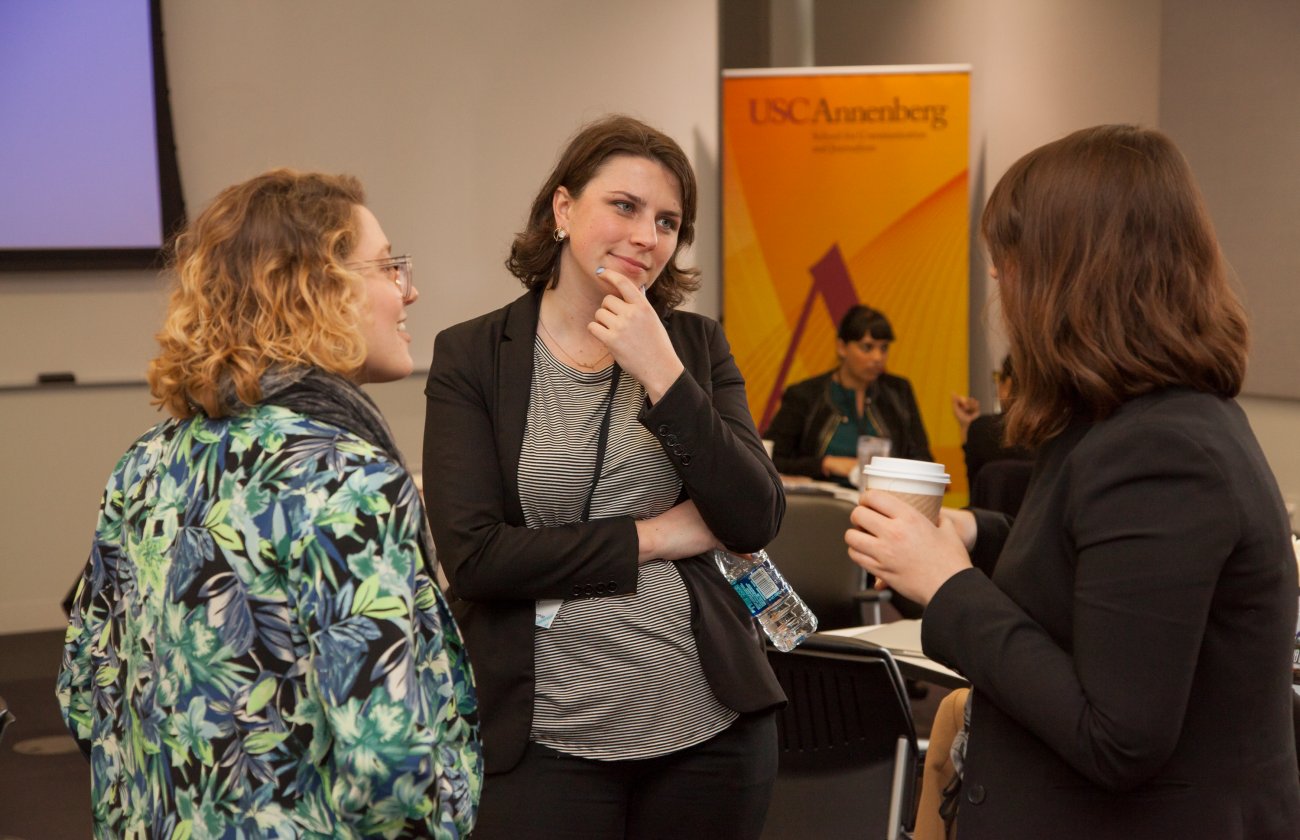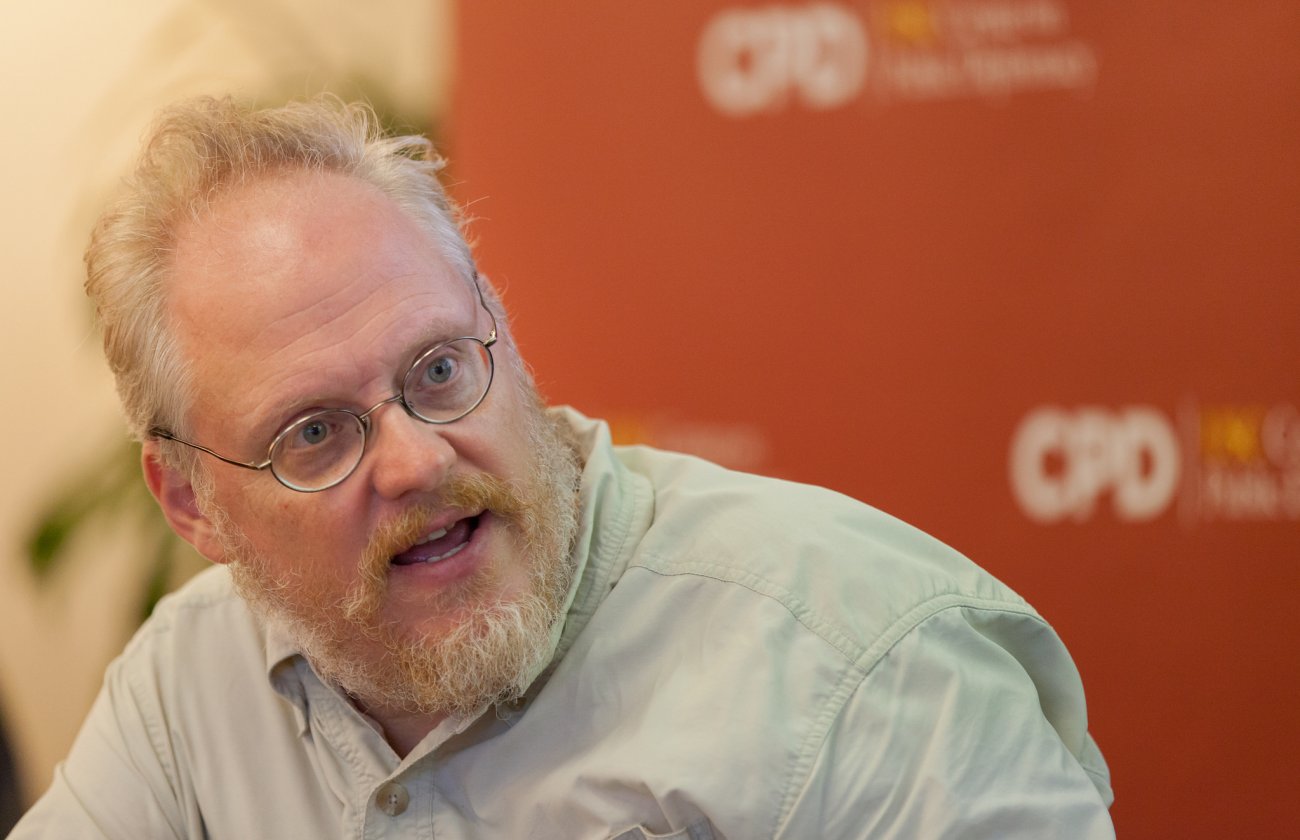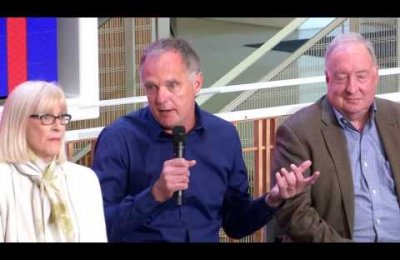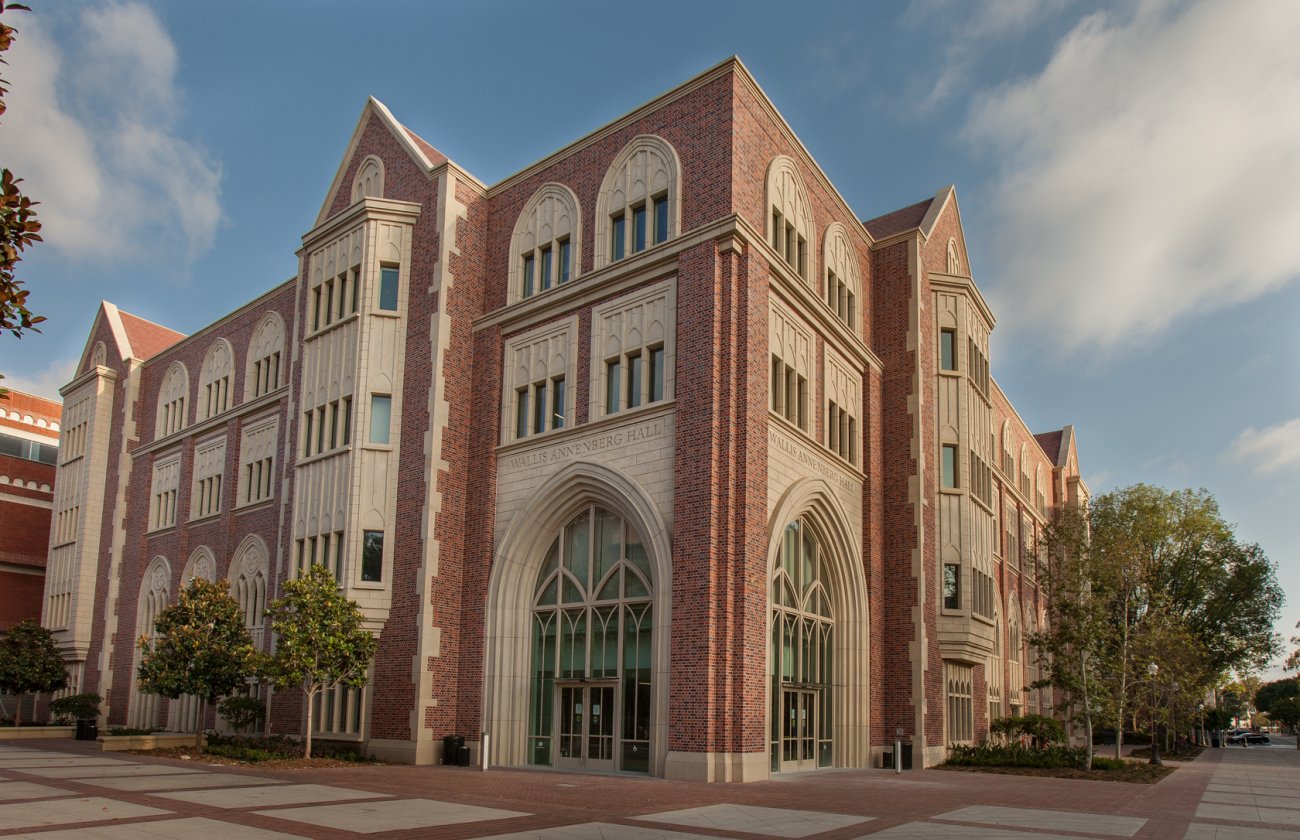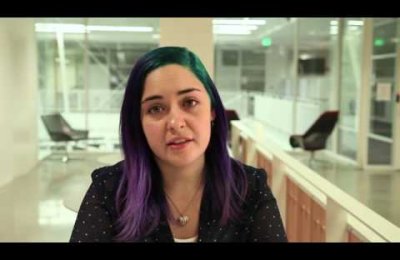This post is republished from Alhambra Source.
By Tim Loc
Alhambra Source celebrated five years of local reporting and community engagement with a book release party and scholarship ceremony on Tuesday at Gallery Nucleus. The packed Main Street gallery gathering included educators, journalists, researchers from the University of Southern California, high school students, and even the "guitar guys" from Rick's Drive In & Out — who provided music for the evening.
Source Founding Editor Daniela Gerson introduced “Alhambra Source: Voices from the New American Suburb,” a collection of stories that were written by more than 40 Source contributors ranging from high school students to retirees. Gerson shared how the site began as an experiment built upon years of research. USC Annenberg Communication Professor Sandra Ball-Rokeach and Journalism Professor Michael Parks launched in 2008 a project investigating how news can impact civic engagement. They selected Alhambra because of low levels of local news coverage and its diverse population. Five years later, Gerson said, the experiment shows clear signs of success.
"The collection demonstrates how community members can tell Alhambra stories and impact their community in a way that no traditional newsroom or reporter from the outside possibly could," Gerson wrote in the introduction to the book.
Several contributors shared their experiences writing for Alhambra Source and the impact it had on their lives and community. Anthony Perez, one of the Source's first contributors, shared how as a high school senior he became involved with the project after Gerson visited his journalism class. He produced a story—"You Seem More Asian than Hispanic"—about his experiences on student government and the lack of Latino student involvement. Alhambra High at the time was roughly half Asian, half Latino, as it remains today. Perez noted that after the story a new student group started to get more diverse students elected to ASB, and in the 2014-2015 school year half the students elected to student government at Alhambra High were Latino.
Kerrie Gutierrez, a grandmother of three who recently completed her bachelor's degree, said she accompanied her husband, a photographer, to her first contributor meeting thinking this would be his project. Instead, Gutierrez ended up writing articles. Even though before the project she had not written more than a letter, she found various subjects to write about in her community — an artist, the post office, a crossing guard. One of the reasons she got involved, she said, was the cross-cultural opportunities. She contrasted Alhambra, where neighbors did not seem to really know each other, to her experiences growing up in East Los Angeles where everyone was acquainted with on another. “I was really intrigued by taking these separate languages and people together, and bridge those communication divisions and let people see that there is one city," said Gutierrez. She said she felt the Source was "giving the opportunity to have a different perspective, to break down some of the stereotypes."
Siye Walter Ma, a courts interpreter who wrote an article about using social media to connect with Chinese residents, shared how his article led to an initiative by the Alhambra Police Department. After Police Chief Mark Yokoyama read Ma's piece, he asked for a meeting. Ma, the APD, and the Source collaborated to create a police Weibo account, and later a WeChat, two Chinese-language social networking tools. Gerson said this is an example of how a stronger storytelling network can increase civic engagement. Ma added that the initiative has helped educate Chinese immigrants of the civic services that are available. "We’ve been able to educate people about new life in America, how they have dealt with crime, if they are a victim of crime," said Ma.
Sergeant Gerald Johnson agreed, saying that social media has strengthened bonds between Chinese residents and the APD. "I can tell you after we started Weibo and WeChat, we are getting more who are willing to talk with us," said Johnson. "If nothing else Weibo and WeChat has opened doors to people who might be concerned coming to police with issues." He went on to recognize the Source young reporters, saying they worked hard on capturing and communicating the stories of the city.
Also included in the celebration was a presentation of the Sam and Jackie Wong-Alhambra Source Scholarship. Seven high school seniors and college undergraduate students — Annie Huang, Nancy Ochoa, Felice Gonzales, Cristina Tangreti, Nicole Yinghui Jiang, Donovan Espinoza, and Andrew Quach — were awarded $500 each for writing essays on how their heritage shapes their lives.
Annie Huang, a recent San Gabriel High School graduate, read from her essay about a life of constant relocation, and how she was left by herself to find a sense of identity:
"Before the age of ten, I had already traveled to nine countries, attended five different schools, and become fluent in three languages. When I moved to America, I had yet to understand the English language. To me, it was both strange and beautiful. However, learning a new language in a completely unfamiliar environment while trying to cope with my father’s death and my mother’s remarriage was no easy task. I could not seek help from my mother, who was burdened with two part-time jobs seven days a week, and whose English was far worse than my own. As a result, I struggled to connect with my classmates due to English as a Second Language classes that made me feel more secluded than I had ever before.
Determined to break this barrier, I would dedicate all of my free time to the stack of children’s books and the opened dictionary on my desk. I would hungrily peruse books from cover to cover to learn the captivating lessons and to discover the unfamiliar, yet fascinating words within the pages. At school, I tried to connect pieces of broken English like a mismatched puzzle so my voice could be heard; ultimately, I found a love for writing as I learned to turn sentences into paragraphs, and paragraphs into essays."
Nancy Ochoa, a senior at Century High School, wrote about the challenges she and her classmates have endured and overcome.
"We are a different type of minority, but what we have in common with other minorities is that we have different struggles than your average American citizen.
In fact, we are even more unique because most of us have gone through things so traumatic, that we are forced to live with anxiety for the rest of our lives. Most of us take medicine to balance the chemicals in our brains, in order to match the status of the average adolescent. In that aspect, we also struggle doing basic things simply because our bodies are still in shock from various life threatening situations. I speak for most of us, when I, as you, look past the labels society gives us and see the pain of every generation before us and after us, if we don’t try to make a difference for kids like me. Although we are a minority and a lot of people do look down on us, we will make it because some of us have hope bright enough to envision a brighter future than the dark flashbacks of our past."
Alhambra High School graduate Donovan Espinoza, who received the scholarship for his essay on moving from Mexico to Alhambra with various stops in between, said the recognition, “is another opportunity to set goals for myself. And it gives me great initiative to achieve.” Espinoza will attend Rio Hondo College in August.
Sam Wong, a local real estate developer, said he got the idea of funding a scholarship after watching a documentary on the first Chinese immigrants who came to America. Wong wanted to provide opportunities for immigrants and worked with Gerson to broaden the scope to a pan-ethnic audience, not just those of Chinese descent.
“All the winning essays were just so moving," Wong said of the students’ work. "Young people grow up so fast in such a hard situation.” All seven essays will be published on Alhambra Source in the upcoming weeks.
Attendees were treated to food from local favorites Bahn Mi My Tho, La Cafeina, Wahib's, and 101 Noodle Express.
David Chan said he attended, “because I wanted to meet the people I’ve been reading about for five years.” Antoinette Morales moved to Alhambra around the time the Source began publication. “I feel like the Alhambra Source and I discovered Alhambra at the same time,” said Morales.
Gayle McKinney, an Alhambra resident of more than 60 years, said, “It’s a good gathering. This is not my demographic but I like diversity and the arts. There are old and young people here and that’s part of the fun.”
“Alhambra Source: Voices from the New American Suburb,” is available at Gallery Nucleus. You can also e-mail tim.loc@alhambrasource.org for a copy of the book. Tiffanie Tran designed the books.
